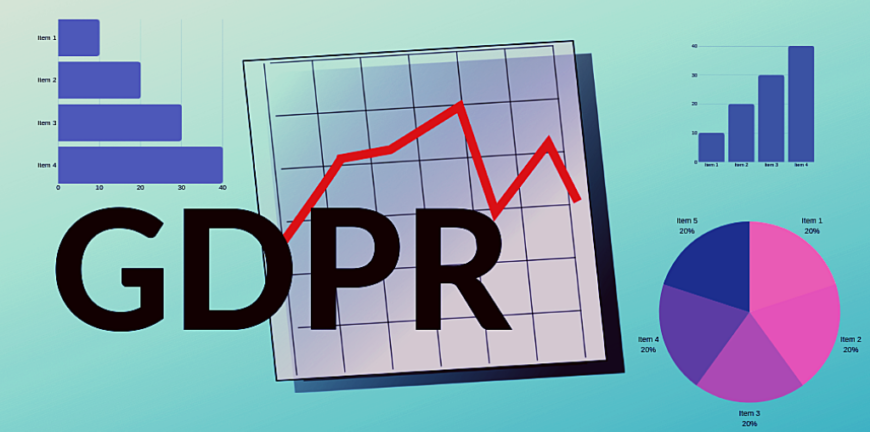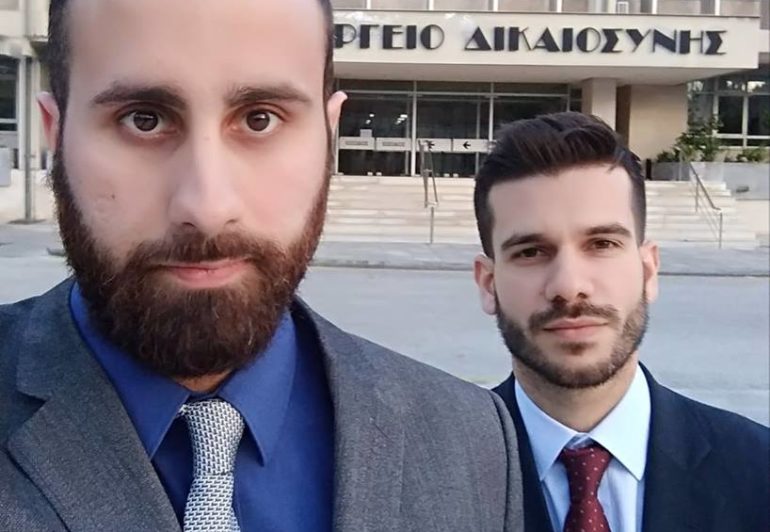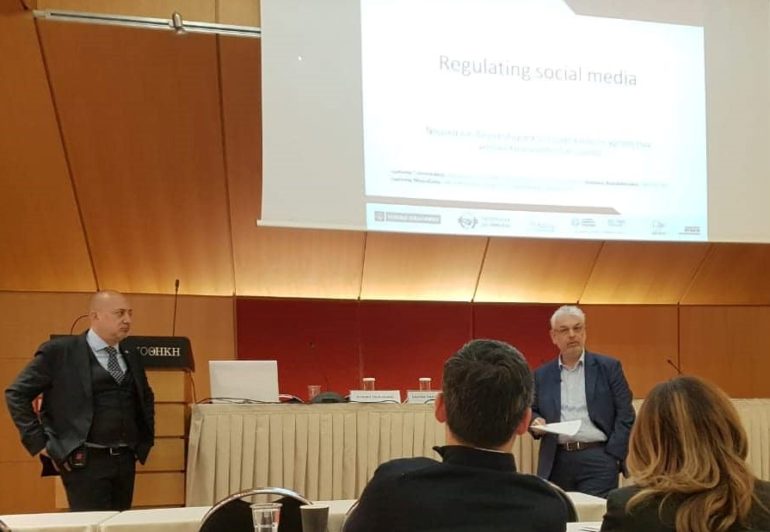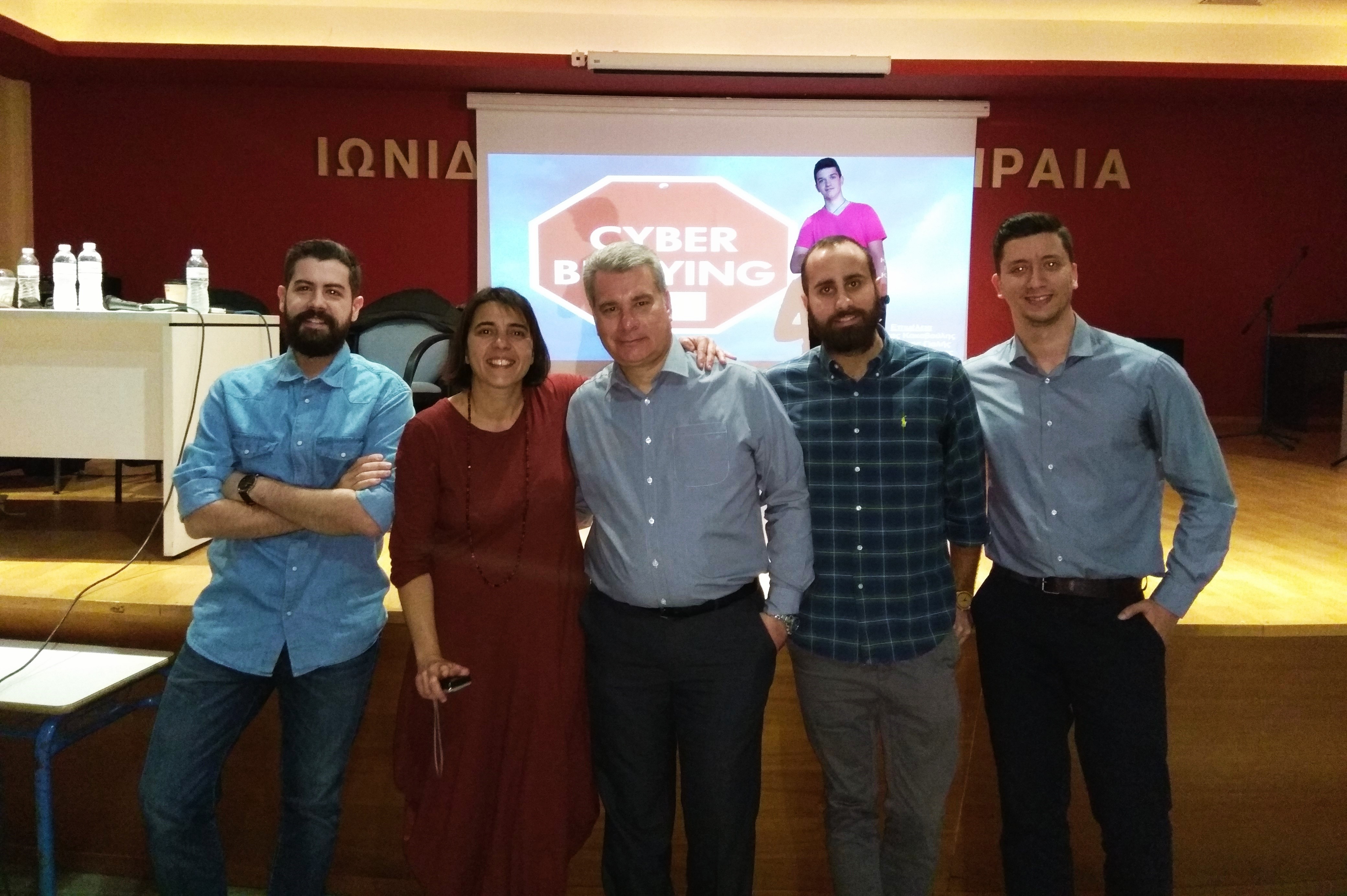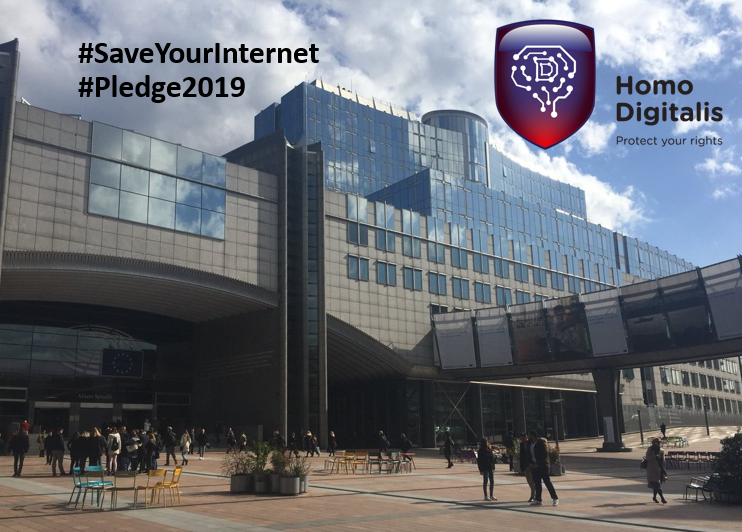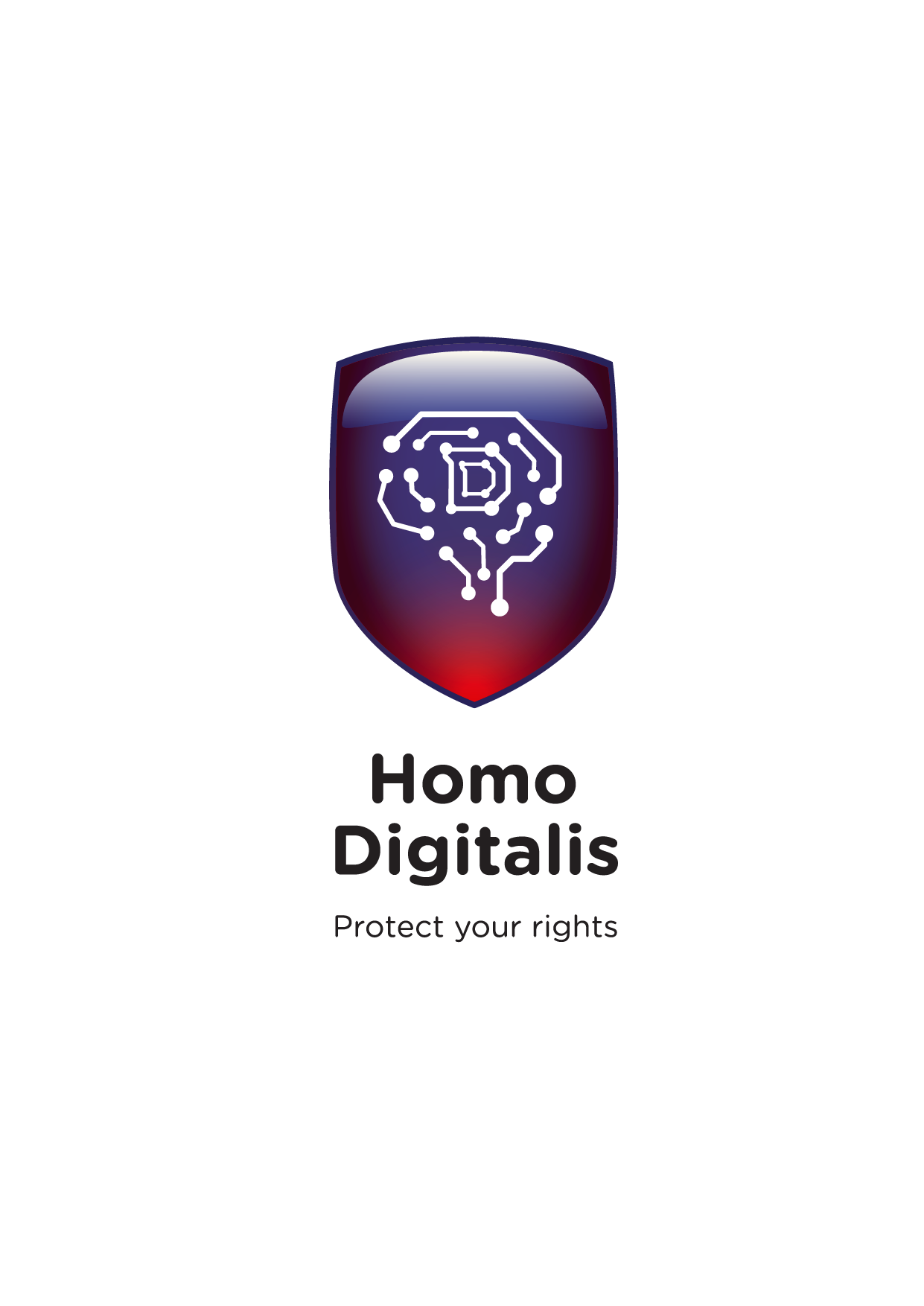The new issue of GDPR Today is out
The new issue of GDPR Today was released on 25 March 2019.
It includes many articles concerning the latest developments at Member States and European Union level on issues related to the application of GDPR provisions.
It also includes a section called “GDPR in numbers” with statistical information for the number of complaints and the number of data breach notifications in seven countries of the European Union, including Cyprus.
At this point we would like to give our sincere thanks to the Data Protection Commissioner’s Office of Cyprus and the Hellenic Data Protection Authority for the pleasant collaboration and the concession of the required statistical data.
This issue has been produced by the Open Rights Groups organisation.
The following organisations took part:
- Access Now
- Association for Technology and Internet
- Bits of Freedom
- Data Skydd
- Homo Digitalis
- Panoptykon Foundation
- Privacy International
Homo Digitalis in a meeting with the Secretary General of the Ministry of Justice
Today, 29.03.2019, Homo Digitalis had a very interesting and important meeting with the Secretary General of the Ministry of Justice, Transparency and Human Rights, Mr. George Sarlis, regarding the draft law which implements the GDPR and incorporates Directive 2016/680/EU.
Konstantinos Kakavoulis and Stefanos Vitoratos represented our organization and advocated for the adoption of regulations aimed at providing citizens with more protection. Stay tuned for more details.
Seminar “Regulating Social Media” with the participation of Homo Digitalis
On Tuesday 27.03.2019 the seminar “Regulating Social Media” took place in Nomiki Bibliothiki (Mavromichali 23, Athens). The seminar was attended by young lawyers who were sensitized and informed about issues that arise from the use of social media.
Lecturers were Mr. Ioannis Giannakakis, lawyer, and Mr. Vasilis Vasilopoulos, DPO of ERT.S.A. and member of Homo Digitalis. Mr. Ioannis Marozinis, lawyer, interfered.
Mr. Vasilopoulos who represented our organization, introduced legal and ethical issues concerning the use of social media.
Our members Mary Mouzaki, Maria-Alexandra Papoutsi, Agamemnon Gavrilidis, Haris Kiritsis, Christina Kalogeropoulou, Ioannis Ntokos, Katerina Psichogiou, Stergios Konstantinou, Ifigenia Gaki, Anastasios Arampatzis, Vaggelis Farmakidis, Nikos Giannaros, Konstantinos Kakavoulis participated in the preparation of the presentation.
Each of our members has approached the issues arising from the use of social media depending on his/her specificity.
We sincerely thank everyone who worked for this seminar and particularly Mr. Vasilopoulos for the excellent presentation!
Homo Digitalis at Ionidios School of Piraeus
Today, 27 March 2017, Homo Digitalis conducted a presentation to students of 12-15 years in Ionidios School of Piraeus concerning Cyberbullying and the proper use of the Internet and personal data. Students took a great deal of interest in this matter, while many of them remained after the layoff to discuss with Kimonas Georgakis, Panagiotis Gialis and Konstantinos Kakavoulis, who conducted the presentation for our organisation.
Warm thanks to Mr. Dimitris Zografopoulos, DPO at the Ministry of Health, for the invitation and the exceptional co-presentation!
In the coming months, Homo Digitalis will conduct many school presentations about digital rights and their protection.
Stay tuned!
Homo Digitalis speaks to ΕΘΝΟΣ about today’s vote in the European Parliament
Eleftherios Chelioudakis, representing Homo Digitalis, speaks to ethnos.gr and journalist Mary Tsinu about this disappointing result and its implications for internet users.
Getting closer to the vote on the proposed European Directive on Copyright
Next week is very important for the future of the internet; particularly for freedom of expression and information and the protection of privacy.
On Tuesday 26th of March, the European Parliament will vote on the proposed European Directive on Copyright. In the past we have hosted on our website detailed articles on this specific legislative reformation.
This proposed Directive introduces certain provisions which have a positive nature. However, some other of its provisions raise significant problems; the most important is Article 13, which, during the vote will constitute Article 17, as the text has been renumbered.
Article 13 is supposed to be set up to improve the existing situation and help the creators enjoy intellectual property rights on their works. However, it fails to achieve its scope and mostly assists the interests of major record, publishing and film companies and the interests of companies, which develop software for content control (content-control / filtering software).
Article 13 also does not eliminate, in any case, the serious pathogenesis of the existing regime. Specifically, it lacks a specific provision for combating false claims related to intellectual property rights, while its general, badly written and unclear provisions would lead to a slew of preliminary rulings to the Court of Justice of the European Union.
Article 13 causes new problems and is unable to ensure a reasonable balance between, on the one hand, the right to the protection of intellectual property and on the other hand the rights to freedom of expression, information and respect of personal privacy. Each type of material, which users of the internet upload on platforms of content exchange, as photos, texts, personal messages, videos, etc. will be subject to control and will not be published to the effect that the filtering software deems that there is an infringement.
Numerous experts have been sounding the alarm about the consequences of Article 13 and the uploading filters for Freedom of Expression and Information on the Internet and its diversity:
– The United Nations Special Rapporteur on Freedom of Expression and Information, David Kaye, has substantially expressed his contradiction to Article 13.
– The Federal Commissioner for Personal Data Protection of Germany, Ulrich Kelber, has clearly stressed that Article 13 leads to a tremendous growth of giants of online services and creates challenges for the protection of privacy on the Internet.
– The Minister for Justice and Citizen’s Protection of Germany, Katerina Barley, has invited German Members of the European Parliament to vote down Article 13.
– 169 specialised and prominent academics in the field of intellectual property, have underlined that the provisions of Article 13 are misleading.
Furthermore, the number of Members of the European Parliament committing to vote down article 13 in the vote of Tuesday is constantly rising!
MEPs, which are independent or represent European political parties from every political field, as the Greens/European Free Alliance (GREENS/EFA), the European United Left (GUE/NGL), the European People’s Party (EPP), the Progressive Alliance of Socialists and Democrats (S&D) and the Alliance of Liberals and Democrats (ALDE) have already openly expressed their opposition to Article 13.
Finally, many people are expressing their dissatisfaction with Article 13 and its very serious effects. More than 100,000 people have participated in the demonstrations that took place in many European countries on Saturday 23 March.
Call your representatives in the few days left!
Ask them to vote down Article 13!
Homo Digitalis in the European Parliament #SaveYourInternet #Pledge2019
Many members of Homo Digitalis who live in Belgium organized important meetings with Greek MEPs arguing against Article 13 of the new copyright directive of the EU.
Representatives of large civil society organizations that have taken significant actions on the protection of human rights in the modern digital age were in the European Parliament these days.
All together we gave a loud message against internet censorship and against violation of privacy and freedom of expression and information.
The number of MEPs who have committed to vote against Article 13 on Tuesday’s vote (26/03) is rising. Independent MEPs or representatives of European parties from every political area such as Greens-European Free Alliance(Greens-EFFA), European United Left-Nordic Green Left(GUE-NGL), European People’s Party (EPP), Progressive Alliance of Socialists and Democrats (S&D) and Alliance of Liberals and Democrats for Europe(ALDE) have openly expressed their opposition to Article 13.
We must unite our voices to claim our rights!
Free and open Internet needs you!
There are two days left until the last vote in the European Parliament (possibly on 26.03.2019), which will be crucial for the future of the Internet. More than one hundred Members of the European Parliament (of which the only Greeks are Ms. Sophia Sakorafa and Mr. Nikolaos Chountis) have already committed to vote down Article 13, while citizens in more than 23 cities in Member States of the European Union raise their voices in demonstrations against Article 13.
Many European citizens have participated until now in the campaign Pledge 2019. Since the end of February, when the campaign started, more than 1200 calls and 72 hours of discussion have been carried out. The specific numbers are unprecedented for such a short period of time and conclusively prove people’s active interest and their will to be part of the political debate, when the step is given. Also, citizens in this way express their disappointment about unfounded accusations that many emails and tweets sent the previous period to MEPs have been actions of fake automated accounts!
Numerous experts have been sounding the alarm about the consequences of Article 13 and the uploading filters for Freedom of Expression and Information on the Internet and its diversity:
– The United Nations Special Rapporteur on Freedom of Expression and Information, David Kaye, has substantially expressed his contradiction to Article 13.
– The Federal Commissioner for Personal Data Protection of Germany, Ulrich Kelber, has clearly stressed that Article 13 leads to a tremendous growth of giants of online services and creates challenges for the protection of privacy on the Internet.
– The Minister for Justice and Citizen’s Protection of Germany, Katerina Barley, has invited German Members of the European Parliament to vote down Article 13.
– 169 specialised and prominent academics in the field of intellectual property, have underlined that the provisions of Article 13 are misleading.
– The International Federation of Journalists (IFJ) has invited European legislators to improve the provisions and put the necessary balance between the Protection of Intellectual Property and the Protection of Freedom of the Expression and Information.
– Sir Tim (Tim Berners-Lee), one of the creators of World Wide Web has openly expressed his contradiction to Article 13 and the risks caused to open Internet.
Nobody can claim that he/she didn’t know the significant negative effects of Article 13! We should act and persuade MEP’s to set aside the several political interests and defend European citizens’ rights!
Finally, many people are expressing their dissatisfaction with Article 13 and its very serious effects. More than 100,000 people have participated in the demonstrations that took place in many European countries on Saturday 23 March.
Call your representatives in the few days left!
Ask them to vote down Article 13!
The interview of Irene Kamara

Irene Kamara is a PhD researcher at TILT and affiliate researcher at the Vrije Universiteit Brussel (LSTS). She follows a joint doctorate track supported by the Tilburg University and the Vrije Universiteit Brussel. Her PhD topic examines the interplay between standardisation and the regulation of the right to protection of personal data.
Prior to joining academia, Irene had been working as an attorney at law before the Court of Appeal in Athens. She also did traineeships at the European Data Protection Supervisor and the European Standardisation Organisations CEN and CENELEC. In 2016, she collaborated with the European Commission as external expert evaluator of H2020 proposals on societal security.
Irene is selected as a member of the ENISA Experts List for assisting in the implementation of the Annual ENISA Work Programme. In 2015, Irene received a best paper award and a young author recognition certificate from the International Telecommunications Union (ITU), the United Nations Agency for standardisation.
– Even though you had a great start at your professional career as a lawyer, you decided to follow a PhD. Your dedication to academic research has led to a successful path with many interesting publications. Looking back, how hard was to make this decision though, and what advice would you give to people facing this dilemma?
| Indeed, I was working for several years as an attorney at law before the Court of Appeals in Athens. Legal practice offered me valuable lessons, among others how different law in the books from law on the ground is, working efficiently under pressure, contact with clients, and task prioritisation. Those are lessons I still carry with me in my academic career. I was always fascinated by data protection, privacy, confidentiality of information in electronic communications and I decided to take a career break for a year and follow the TILT’s master program on law and technology. I feel that as a practicing lawyer you always need to learn and evolve. Tilburg’s Law & Tech master program, as you know, offers courses on privacy & data protection, intellectual property, regulation of technologies, e-commerce and gives the student the opportunity to become an expert in cutting-edge topics. After the master, I was offered a researcher position at the Vrije Universiteit Brussel under the mentorship of prof. Paul De Hert. At VUB, I decided I wanted to do a PhD. I realised that via research you have the opportunity to reach out to a bigger audience than merely your clients as a legal practitioner, and adopt a pro-active approach to problem solving, than a re-active one which is often the case in legal practice. Of course what weighed in my decision was also the quality of the working environment and conditions and the high standards in research. Both TILT/Tilburg University and LSTS/VUB have been wonderful homes, allowing me to evolve and progress as a professional, by actively encouraging independent thinking and inter-disciplinary research. To colleagues facing such dilemma, I would say dare to take a risk and leave your comfort zone. Test yourself with a research visit at an institution, writing an academic paper and presenting it at a conference. And keep in mind that academic life is not an easy one, either. And my advice is to choose an academic institution and a mentor that recognises and appreciates your hard work. |
– You have participated as a speaker in panels at top level conferences and events all around the world. The Computers, Privacy, and Data Protection Conference at Brussels, and the IGLP Conference at Harvard Law School are some of them. How did all these experiences shape your research and why is it important for researchers to exchange thoughts with other experts in a global level?
| I believe that participation in conferences is a necessary component for every scholar. Not only for sharing and exchanging knowledge, but also for validating and enriching your research results, cross-fertilising ideas. I am against the old-school approach of researchers, especially PhDs, isolated in an office and writing up articles. While there is probably scientific theoretical value in the outcomes of such research as well, the result will most likely lack societal impact. I usually select the conferences depending on the audience from which I would like to get feedback for my research. The IGLP Harvard conference last year was a great opportunity to expose my thoughts to a global law audience from literally all around the world. I met so many academics being interested in my research or working on complementary topics. IGLP stands exactly for this: investing in creating a stable network of people eager to exchange their ideas globally and assist each other. Besides such conferences, I am lucky that my home institutions, TILT and LSTS organise the annual CPDP conferences and the bi-annual TILTing conferences, to which I participate. Those are very good examples for broadening one’s research interests. |
– Your PhD topic examines the interplay between standardisation and the regulation of the right to protection of personal data. Tell us more about this field and the projects you are working on.
| My current research field is human rights with a focus on data protection and privacy, regulatory instruments such as standards, certifications, and codes of conduct, and new technologies. My PhD looks at how soft law, such as technical standards, interacts with human rights regulation, with a focus on personal data protection. While there is a visible regulatory sphere in regulating data protection, that is the Union’s secondary legislation, there is also a set of rules embedded in technical standards that is not so visible. Such rules might translate legal requirements to technical controls or prescribe a set of policies and behaviors to controllers and processors that go beyond the letter of the law. I am researching this interplay and the various roles standardisation might play in regulating data protection. Other than my PhD project, an interesting project I have been working on as a principal researcher is the study on certification of Art. 42 and 43 of the General Data Protection Regulation for DG Justice & Consumers of the European Commission. Last year, I also collaborated with ENISA on a study on privacy standards. That was an exciting project. I worked together with standardisation experts, civil society and industry to produce the report. |
– You are member of various important organizations. One of them is the Netherlands Network for Human Rights Research (NNHRR). In the Netherlands, organizations, such as Bits of Freedom, and universities, such as the Tilburg University have an active role as regards the promotion and protection of Human Rights in the digital age. What do you think about the situation in Greece in this field? Can civil society organizations and academia, work together to push for positive outcomes?
| Although barely in the spotlight, the role of NGOs and academia is fundamental for defending societal interests. There are also some exceptions like the recent CNIL fine on Google. As far as I am concerned, so far there hasn’t been a coordinated initiative fighting for digital rights in Greece. I see Homo Digitalis as an initiative aiming to fill this gap, by not only informing the broader audience through awareness raising campaigns but also flagging false and unfair practices, participating in public consultations, strategic litigation. |
– You have joint publications with great academics in the field, such as Paul de Hert and Eleni Kosta. If you could share an advice with young researchers reading this interview, what would that be?
| Paul and Eleni are both my PhD supervisors and have been great mentors in my academic career so far. I have certainly learned a lot from collaborating with them. I would advise new researchers to share and exchange ideas with colleagues, take risks in exploring new fields, set goals and work hard to achieve them. And also very important: don’t be afraid to aim high. |
